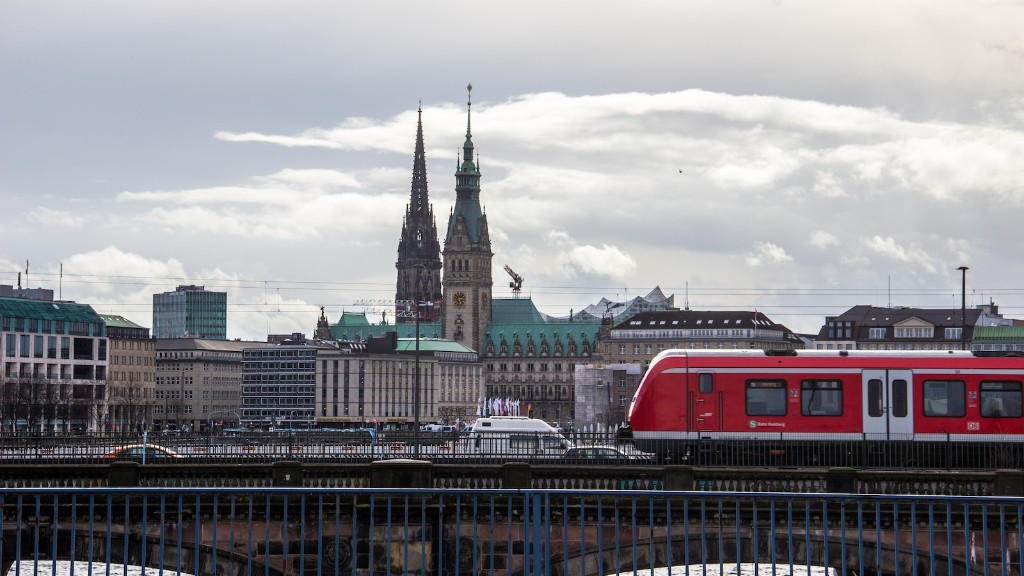Background Information
Germany has long been a popular destination for both travellers and tourists. It has a vibrant culture, beautiful landscapes and interesting cities. In recent times, however, the country has implemented new measures to curb the spread of the COVID-19 virus, and one of these measures is the introduction of the Rapid Antigen Test. This test is mandatory for all travellers from certain countries, and is intended to provide quicker and more accurate results than the traditional PCR test.
The Rapid Antigen Test is an antigen test which detects the presence of the SARS-CoV-2 virus by looking for antigens in the sample taken. It is a relatively quick test, and results are usually available within an hour. The German government has recognised the importance of rapid testing in the fight against COVID-19, and has implemented the requirement for all travellers from certain countries, such as the UK, to take the test within 48 hours before entering Germany.
Relevant Data
The Rapid Antigen Test has been met with mixed responses from both experts and travellers. According to the Robert Koch Institute (RKI), the Rapid Antigen Test has a higher false-negative rate than the PCR test, meaning that it is not as effective in detecting infections.
However, the test is still considered useful as it can detect primary and secondary infections. The World Health Organization has stated that the Rapid Antigen Test is “efficient for identifying infected people for the purpose of isolation or quarantine”. The test also provides results much quicker than the traditional PCR test. This is beneficial for travellers as it allows them to receive their results quickly, and plan their journey accordingly.
Perspectives from Experts
Experts have given their views on the Rapid Antigen Test requirement for travel to Germany. Most agree that the test provides some benefits, such as quicker results, but caution must be used when interpreting the results.
Dr. Volker Bianca from the University Hospital of Frankfurt stated that “it is important to consider that a negative Antigen Test result does not necessarily indicate that a person who tested negative is not infected”. He stresses the importance of maintaining social distancing and other precautions, even if the test result is negative.
Dr. Giampiero Caraffa of the European Medical Association also commented that the Rapid Antigen Test “can be useful in certain scenarios, but should not be used as the only indicator of infection”. He noted that more accurate results can be achieved if the Rapid Antigen Test is used in conjunction with other methods, such as contact tracing.
Analysis and Insights
The Rapid Antigen Test requirement for travellers entering Germany is an important measure to help reduce the spread of the COVID-19 virus. Whilst the test is not as accurate as the PCR test, it is still useful in helping to detect and isolate infected people. It is also beneficial for travellers as it provides quicker results, allowing them to plan their journey accordingly.
However, experts caution that it should not be used as the only indicator of infection, and other methods such as contact tracing should be used in conjunction with the test. It is important to note that a negative result does not necessarily indicate that a person is not infected, and social distancing and other precautions should still be followed.
Testing Requirements
The Rapid Antigen Test is currently mandatory for all travellers entering Germany from certain countries, including the UK. The test must be carried out within 48 hours of entering the country, and results must be sent to the German Embassy by email. It is important to note that travellers must also follow the entry requirements of their own countries in order to be allowed entry into Germany.
The cost of the Rapid Antigen Test varies depending on the provider, but is generally around EUR 65. In some cases, the cost is covered by health insurance policies. Travellers can also take the PCR test, which is more accurate, but this also requires an additional fee.
Test Availability
The Rapid Antigen Test is available at many certified laboratories throughout Germany, as well as at airports, ports and at the German borders. Residents of Germany can also get the test at their local health authority. It is important to note that businesses and other organisations may also require their staff to take the test.
It is also possible to take the test at home, although this is not recommended as it is more likely to lead to a false-negative result. The results of the test will be sent to the German Embassy by email, and must be sent within 48 hours of entering the country.
Health Insurance Coverage
Most German health insurance providers will cover the cost of the Rapid Antigen Test in certain circumstances. For example, if the test is being taken for medical reasons, many insurers will cover up to EUR 250 of the cost. It is important to check with the individual insurance provider to find out if they offer this coverage.
It is also worth noting that the cost of the PCR test is not usually covered by insurance, as it is considered to be an optional test rather than one for medical reasons.
Precautions for Travellers
As with any other form of travel, there are certain precautions that should be taken when planning a trip to Germany. All travellers should familiarise themselves with the entry requirements of the country they are travelling to in order to ensure they meet the necessary criteria. They should also ensure they take all the necessary safety precautions, such as wearing a face covering and maintaining social distancing.
Travellers should also ensure they have the necessary travel documents, such as a valid passport, along with any other necessary documents such as a visa or proof of health insurance. It is also important to ensure that the Rapid Antigen Test is taken within 48 hours of entering Germany, and the results are sent to the German Embassy by email.
Impact on Businesses
The introduction of the Rapid Antigen Test requirement for travel to Germany has had an impact on businesses in the country. For example, many businesses have had to adjust their policies and procedures to accommodate the new requirements.
Businesses have also had to invest in testing equipment in order to ensure their staff are able to take the test. Additionally, businesses may be required to provide the test for their customers, depending on the individual business’s policy.
The introduction of the Rapid Antigen Test has also enabled businesses to operate more safely, as it helps to detect and isolate infected people. This in turn helps to protect both employees and customers, as well as helping to reduce the spread of the virus.
Future Developments
The German government has stated that they are continuing to work on new measures to help curb the spread of the virus. One of these measures is the development of the so-called ‘Virus Pass’. This is a digital certificate which will display a person’s test results, allowing them to enter businesses and venues without the need for additional testing.
The government is also looking at introducing new testing requirements, such as requiring people to take the test prior to travelling to certain locations. This would help to reduce the risk of the virus spreading further and faster, in particular in areas where there is a high risk of infection.
The government is also considering allowing people to take the Rapid Antigen Test at home. This would greatly reduce the need for travellers to visit testing centres in order to take the test.
Other Measures to Stem Spread
It is clear that the German government is taking the threat of COVID-19 very seriously, and is taking all necessary steps to reduce the spread of the virus. In addition to the Rapid Antigen Test requirement for travel, they are also implementing contact tracing procedures and encouraging people to maintain social distancing.
The government is also working with businesses to ensure they have the necessary safety procedures in place, such as adequate sanitisation and sufficient ventilation. They are also continuing to work on new measures which can help to reduce the spread of the virus, such as the Virus Pass.
All in all, the German government are taking the necessary steps to help protect their citizens from the threat of COVID-19. The Rapid Antigen Test requirement for travel is just one of the measures in place, but it is a very important one as it can help to detect and isolate infected people.


